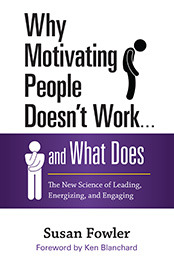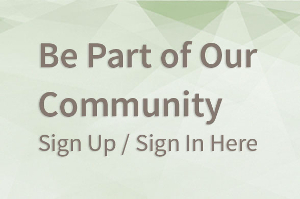BK Blog Post
If it is business, it is personal
 Posted by
Charlotte Ashlock,
Executive Editor,
Berrett-Koehler Publishers Inc.
Posted by
Charlotte Ashlock,
Executive Editor,
Berrett-Koehler Publishers Inc.
Charlotte Ashlock is a crazy idealist trying to make the world a better place!
Employees probably spend more of their waking hours connected to work and interacting with their coworkers than with family members. Yet managers believe their actions are not personal and just business.
Every day you deliver information, feedback, or news to those you lead that affects their work, livelihood, opportunities, status, income, mood, health, or well-being. How is this not personal?
Whatever your beliefs, one thing is true: what you say and do feels personal to the people you lead! Therein lies the issue: feelings. In my book Why Motivating People Doesn't Work we explored the issue of the f-word in organizations. Do you believe that expressing feelings does not belong in the workplace? If so, challenge yourself by asking, How did this belief become so commonly held? Where did my belief come from?
One possibility why feelings are discouraged in the workplace is that managers do not have the skill to effectively deal with them. True, some employees do not self-regulate well and may let their emotions get the best of them from time to time. But the fear of unruly emotions is disproportionate to the occurrence and severity of emotional outbreaks.
What if you changed the belief that it’s not personal, it’s just business to one more likely to activate optimal motivation? If it is business, it is personal.
Try embracing the idea that all emotions are acceptable but not all behavior is acceptable. Notice, acknowledge, and deal with a person’s emotions. Practice self-regulation by listening to your heart and acknowledging the crucial role that feelings play in your work and life.
Consider letting go of leadership practices that undermine people’s psychological needs and adopt best practices that encourage them. As your beliefs change, watch how your leadership practices change—and how your people respond.
What Doesn’t Work
- Think to yourself or tell a person directly, “You shouldn’t feel that way.”
- Be judgmental and make approval conditional.
- Tolerate sabotaging actions or unacceptable patterns of behavior.
What Does Work
- Acknowledge and validate people’s feelings and emotions.
- Offer pure or descriptive feedback rather than evaluative feedback or personalized praising.
- Facilitate the generation of options and ask open-ended questions to promote mindfulness.
***
Found this helpful? This blog post was excerpted from Why Motivating People Doesn't Work...and What Does by Susan Fowler. Click on the cover below to learn more about the book.






